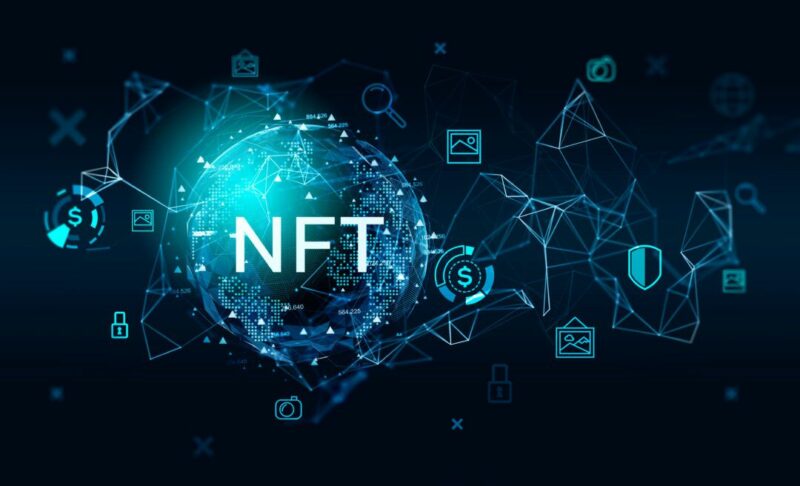Quick take:
- The IRS on Tuesday published a statement seeking feedback on guidance on NFT taxation.
- The guidance states circumstances under which NFTs could be treated as collectibles like (Gems and Stamps).
- We asked experts to weigh in on the subject and the potential impact on the NFT industry overall.
The Internal Revenue Service (IRS) on Tuesday issued an update on its latest guidance for NFT taxation. The US statutory body has asked for comments about treating non-fungible tokens (NFTs) as collectibles.
This announcement comes just months after the IRS updated the wording around NFTs, classifying them under digital assets.
“The Treasury Department and the Internal Revenue Service today announced that they are soliciting feedback for upcoming guidance regarding the tax treatment of a nonfungible token (NFT) as a collectible under the tax law. Today’s guidance also requests comments on the treatment of NFTs as collectibles and describes how the IRS intends to determine whether an NFT is a collectible until further guidance is issued,” the IRS wrote on its website.
NFT regulation has been one of the most divisive subjects in the crypto world with different governments taking different approaches to tax NFTs.
Earlier in 2022, India imposed a 30% tax on NFTs, referring to them as virtual assets, while Singapore taxes profits from selling NFTs under income taxes. On the other hand, Israel imposed a capital gains tax on NFT sales.
Given the IRS’ latest statement of potentially categorising some NFTs as collectibles for tax purposes, we sought expert opinion to understand what this would mean for the industry.
The implications of treating NFTs as collectibles under US tax laws.
Bill Hughes, Senior Counsel & Director of Global Regulatory Matters at ConsenSys commented:
“While this tax treatment doesn’t dictate how an investor protection agency would treat collectible NFTs, it on balance helps push back any notion the SEC may have that all NFTs are securities that need to be regulated like stocks and bonds.” However, the main issue the IRS is facing is identifying what NFTs should be treated as collectibles for tax purposes, he said.
Given the multiple use cases of NFTs, “it is fair to call some NFTs collectibles” under which case, if held long-term, their capital gains tax increases to 28% as compared to the 20% cap applied on other assets, added Hughes.
Colin Johnson, Co-Founder & CEO of Freeport, a platform bringing fine art investment on-chain shares the same view, but adds this could be “a near-term net negative for NFT collectors.”
“Effectively, the taxable rate for long-term capital gains would increase from a 20% cap (and often less, depending on income) to a 28% cap.”
But Johnson also sees some positives coming out of this, especially given President Biden’s plans to raise the capital gains tax rate.
“While regulation can signal the government’s intent to take a category seriously, this is a largely negative move for long-term collectors. The silver lining is that for many people flipping NFTs short term – and flipping with a significant income – this may actually lead to a reduction in what’s owed,” he said, adding that it “could end up being the best long-term approach for taxation, even if painful in the near term.”
On the other hand, echoing the potential impact of a higher tax rate on NFTs treated as collectibles, CoinTracker’s Head of Tax Strategy, Shehan Chandrasekera highlighted the IRS’ clear recognition of the fact that some NFTs can be treated as non-collectible items as a positive.
“The IRS’s acknowledgement of two types of NFTs (NFTs classified as collectibles and NFTs classified as non-collectibles) is good news. The latter will clearly not be subject to a higher long-term cap gains rate; their tax treatment will be very similar to cryptocurrency,” he said.
Miles Fuller, Director of Government Solutions at TaxBit also highlighted the fact that this could result in a higher tax rate for NFTs that are treated as collectibles. But he also thinks this will have a positive impact on the industry.
“Overall, this will be good for the NFT industry as it will provide clarity around the tax treatment of NFTs. Over the past few years, some uncertainty has existed particularly on the question of whether NFTs are collectibles and this notice seems to clearly indicate that [although] some NFTs are collectibles not all of them are.”
“This notice is also a sign of government collaboration with the ecosystem (at least from the IRS). The IRS is indicating that it understands a lot more about how NFTs function than many might think and it is being open about the fact that it does not understand everything,” said Fuller.
But Benjamin Hor, Head of Research at Blockchain Founders Fund thinks that the fact IRS is asking for comments about what NFTs are to be treated as collectibles is a symptom of the system lagging behind technological advancements.
“The IRS’s initiative is a symptom of the inability of regulators to keep up with the development of new technologies. Section 408(m) of the federal tax code defines a collectible as tangible personal property,” he said.
Pointing to the few examples that IRS gave in their statement, Hor argues that those examples focus on tokenisation of real-world assets, whereas, “most NFTs are intangible and do not even fall under that category.”
For this reason, Hor thinks that the IRS will naturally adopt the more difficult-to-execute “look-through analysis method,” rather than applying a blanket tax rate on all NFTs.
String CEO, Ace Desai, told NFTgators that his company is in the process of drafting comments to send to the Treasury Department and the IRS.
According to Desai, treating NFTs as collectibles is likely to stunt investment in the industry because of the high long-term tax rate, whereas taxing them under the Capital Gains statutory for other assets would promote investment and innovation in the space.
“While the announcement to treat certain NFTs as collectibles is a step towards providing clarity and guidance for the NFT industry, further collaboration between innovators and regulators is necessary to strike a balance that benefits both the industry and the government. The look-through analysis, as mentioned in the notice, could serve as a starting point for future guidance and regulation,” added Desai.
The String CEO also believes that regulating the NFT industry could have a positive impact if done correctly.
“As the NFT landscape continues to evolve, it is vital to ensure that regulations adapt to protect investors, promote innovation, and foster a healthy market,” he said.
Danny Talwar, Head of Tax at Koinly thinks that while further clarity on NFTs and collectibles will be welcomed, it is important that it takes public feedback into account.
“The implications of treating NFTs as collectibles under US tax law include less favourable capital gains tax treatment in comparison to other capital assets. Collectibles cannot be held in Individual Retirement Arrangements and are subject to a 28% long-term capital gains tax rate rather than 20%. Additionally, the new guidance will raise questions about the identification of a collectible, particularly as the use cases for NFTs can be varied,” said Talwar.
****
Stay up to date:
Subscribe to our newsletter using this link – we won’t spam!





